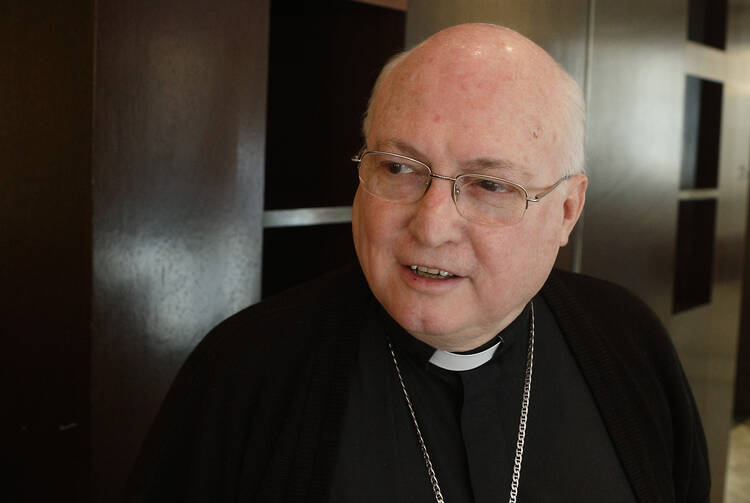After a Vatican investigation, Pope Francis removed a Paraguayan bishop from his post as head of the Diocese of Ciudad del Este because of “serious pastoral reasons.” But the bishop shot back later the same day, charging in an open letter that he was the victim of an ideological campaign by Paraguayan bishops in league with Vatican officials. Bishop Rogelio Livieres Plano, 69, was told to step down as head of the diocese, effective Sept. 25. Bishop Ricardo Valenzuela Rios of Villarrica del Espiritu Santo will temporarily administer the diocese. A Vatican statement said the “onerous decision” to dismiss Bishop Livieres was made after a “careful examination” of the findings of a Vatican investigation conducted by the congregations for bishops and for clergy. In the exercise of his ministry protecting unity among bishops and the faithful, according to the statement, Pope Francis “asks the clergy and all the people of God” in the diocese to accept the decision “with a spirit of obedience, docility and a neutral attitude.”
Pope Calls for Unity In Paraguay
Show Comments ()
1
Comments are automatically closed two weeks after an article's initial publication. See our comments policy for more.
David Cruz-Uribe
10 years 9 months ago
An interesting action on the part of the Pope. I wonder who will be next. For a wrap up of reactions around the blogosphere, see my blog post:
http://vox-nova.com/2014/10/03/there-is-a-new-sheriff-in-town/
The latest from america
Los Angeles Archbishop José H. Gomez was one of several community leaders who joined to open the Family Assistance Program, aiding those affected by recent ICE raids.
On Friday, Pope Leo XIV issued a statement on the theme "Migrants, missionaries of hope."
In Steven Spielberg’s “Close Encounters of the Third Kind,” an ordinary electrician has a transcendent encounter—with U.F.O.s, not God.
Many of my acquaintances have given up “reading about something that didn't happen.” But fiction has long-term and concrete value, both mentally and socially.








